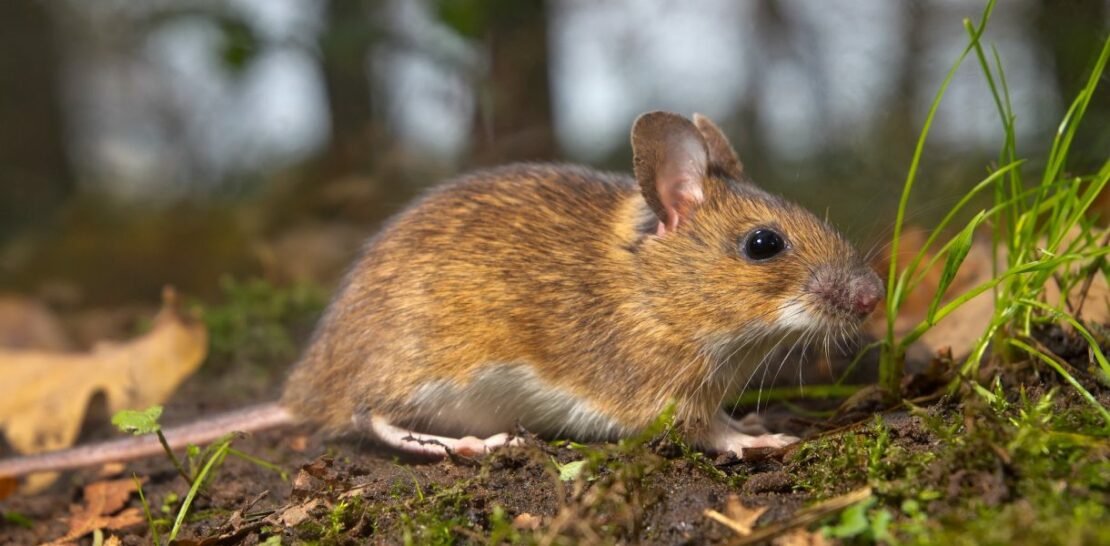Are you tired of dealing with pesky rodents invading your home?
Worry no more, as this comprehensive article will guide you through some of the most effective and natural repellent plants that can help keep mice and other rodents away from your home.
These plants not only provide an environmentally friendly solution to your rodent problem but are also aesthetically pleasing, making them a perfect addition to your garden or indoor spaces.
Read on to discover the top plants that can serve as a natural barrier against rodents and learn how to incorporate them into your home for maximum effect.
Discover the Power of Aromatic Plants in Repelling Rodents
One of the key factors behind the effectiveness of certain plants in repelling rodents is their strong, distinct aromas that are unpleasant to these critters. In this section, we will explore some potent aromatic plants that can deter rodents and help you maintain a rodent-free home.
Mint: This aromatic plant, famous for its refreshing scent, has a powerful effect on mice and other rodents. Due to its strong fragrance, mint acts as a natural deterrent for these creatures, who find the smell unbearable. There are several varieties of mint to choose from, such as spearmint, peppermint, and lemon mint, all of which are equally effective in discouraging rodents. Plant mint in pots and place them near entry points, or grow it in your garden to create a protective barrier around your home.
Lavender: Lavender is a beautiful flowering plant known for its soothing and calming properties. However, its strong scent also makes it an effective rodent repellent. The aroma of lavender is repulsive to mice and other rodents, making it an excellent addition to your garden or home. Plant lavender in your garden or create lavender sachets to place in closets and drawers to keep rodents at bay.
Garlic: Garlic is not only a staple in most kitchens, but its pungent smell also makes it an effective natural deterrent for rodents. Planting garlic around your garden or home can help keep mice and other pests away. Additionally, you can use crushed garlic cloves to create a potent solution that can be sprayed in areas frequented by rodents to discourage their presence.
Utilize the Diverse Repellent Properties of Various Plant Types
Beyond aromatic plants, there are several other categories of plants that possess unique properties that make them effective in repelling rodents. In this section, we will delve into the world of such plants and learn how to make the most of their natural repellent abilities.
- Umbelliferous Plants: These plants, characterized by their umbrella-shaped flower clusters, are rich in coumarin, a compound that is toxic to rodents. Examples of umbelliferous plants include dill, fennel, and parsley. Planting these in your garden can help deter rodents while also adding a touch of beauty to your outdoor space.
- Narcissus: This gorgeous spring-blooming flower contains a toxic alkaloid called lycorine, which is harmful to rodents. Planting narcissus bulbs in and around your garden can help keep rodents at a distance while also providing a vibrant burst of color.
- Marigolds: These bright and cheerful flowers emit a strong odor that is unappealing to rodents. Marigolds also contain a substance called alpha-terthienyl, which can ward off pests like nematodes. Plant marigolds in your garden or place pots near entry points to help keep rodents away.
Incorporate the Power of Essential Oils Derived from Repellent Plants
Essential oils derived from plants with rodent-repelling properties can be a potent and convenient way to keep mice and other pests away from your home. In this section, we will explore some of the most effective essential oils and how to use them for maximum impact.
- Eucalyptus Oil: Derived from the eucalyptus tree, this essential oil has a strong, camphor-like scent that is unpleasant to rodents. To use eucalyptus oil as a repellent, simply add a few drops to cotton balls and place them in areas where rodents are likely to enter or hide.
- Rosemary Oil: Known for its woody and herbaceous aroma, rosemary oil is a natural rodent deterrent. Apply rosemary oil to cotton ballsand place them in strategic locations throughout your home, or create a spray by mixing a few drops of the oil with water and spraying it in areas frequented by rodents.
- Peppermint Oil: As mentioned earlier, mint is an effective rodent repellent, and its essential oil is no exception. Peppermint oil has a strong, refreshing scent that is intolerable to rodents. Use it in the same manner as eucalyptus and rosemary oils, applying it to cotton balls or creating a spray to use in areas where rodents are likely to be present.
- Clove Oil: This essential oil, extracted from clove buds, has a warm and spicy aroma that rodents find unappealing. Use clove oil in the same way as the other essential oils mentioned above to keep your home rodent-free.
Combine Repellent Plants with Other Natural Rodent Control Methods
While using repellent plants and their essential oils can be highly effective in deterring rodents, implementing additional natural rodent control methods can help ensure a comprehensive and long-lasting solution to your rodent problem. In this section, we will discuss some important tips and strategies to help you keep rodents at bay.
Cleanliness and Home Maintenance: Ensure that your home is clean and well-maintained, as a cluttered and untidy environment provides ample hiding spots and food sources for rodents. Regularly clean and vacuum your living spaces, paying special attention to kitchens and pantries where food is stored. Seal any cracks or openings in your home’s exterior to prevent rodents from gaining entry.
Proper Food Storage: Store food in airtight containers and avoid leaving leftovers or open food packages out in the open. Dispose of food waste promptly and use tightly sealed garbage cans to prevent rodents from accessing your trash.
Natural Predators: Encourage the presence of natural predators, such as cats, owls, and snakes, in your outdoor spaces. These predators can help keep rodent populations in check, adding an extra layer of protection to your home.
Traps and Barriers: Utilize non-toxic, humane traps to catch rodents, or create physical barriers using materials like steel wool or hardware cloth to block entry points. Always handle trapped rodents with care and release them in a location far from your home to prevent re-entry.
In conclusion, incorporating repellent plants and their essential oils into your home and garden, along with implementing additional natural rodent control methods, can provide an effective and environmentally friendly solution to keeping mice and other rodents at bay. By choosing from a diverse range of aromatic and toxic plants, such as mint, lavender, garlic, umbelliferous plants, narcissus, and marigolds, you can create a multi-faceted defense against these unwanted visitors. Furthermore, essential oils like eucalyptus, rosemary, peppermint, and clove oil serve as potent and convenient deterrents that can be easily applied throughout your home. Lastly, maintaining a clean and well-maintained environment, utilizing proper food storage practices, encouraging natural predators, and employing traps and barriers will help ensure a comprehensive and lasting solution to your rodent problem. Embrace the power of nature and enjoy a rodent-free home with the help of these natural and effective repellent plants.




